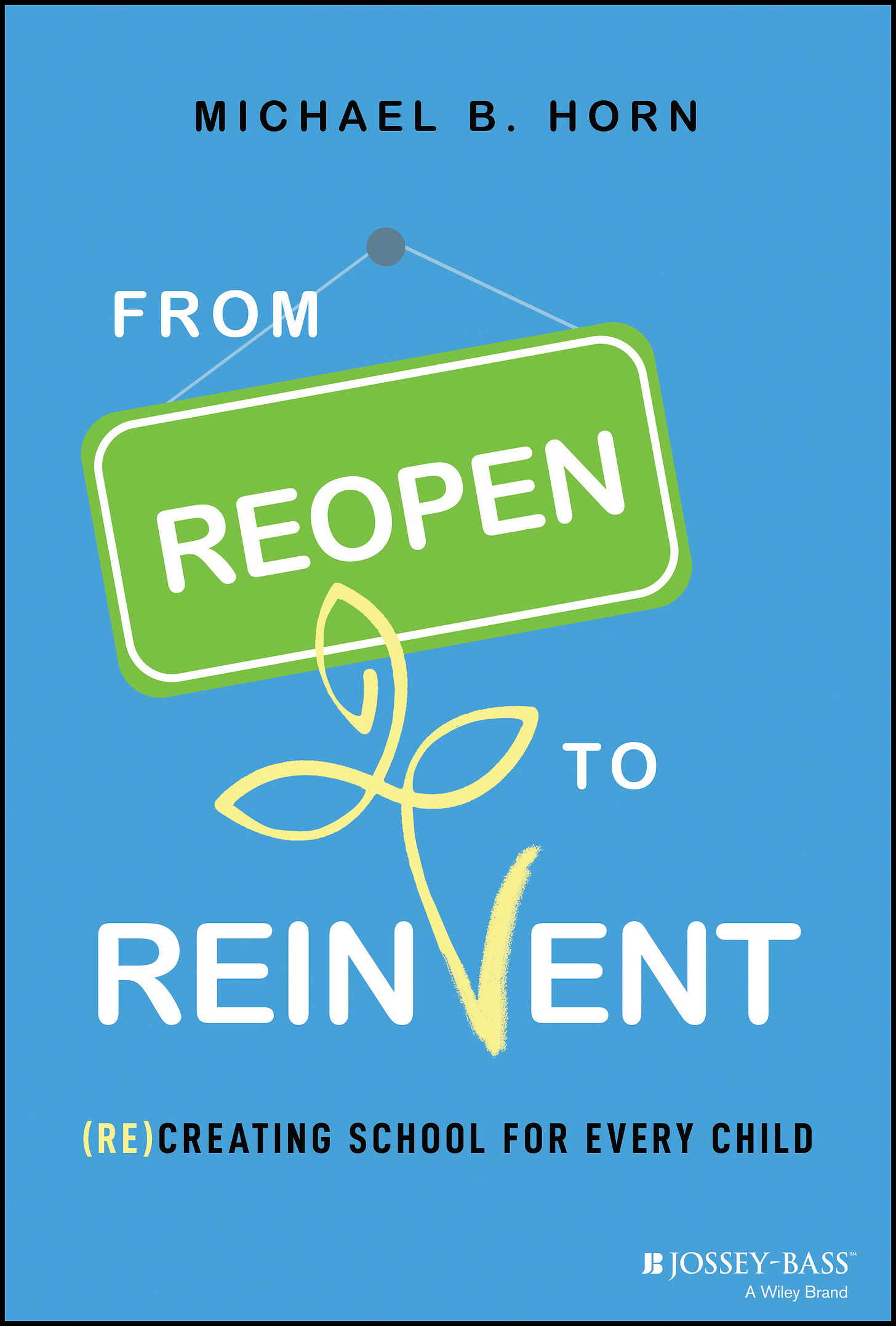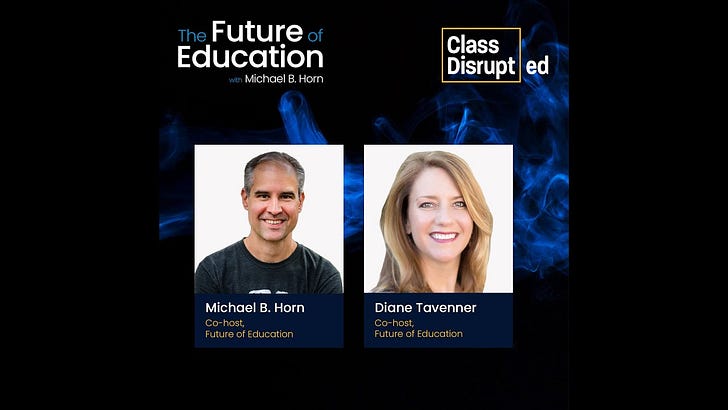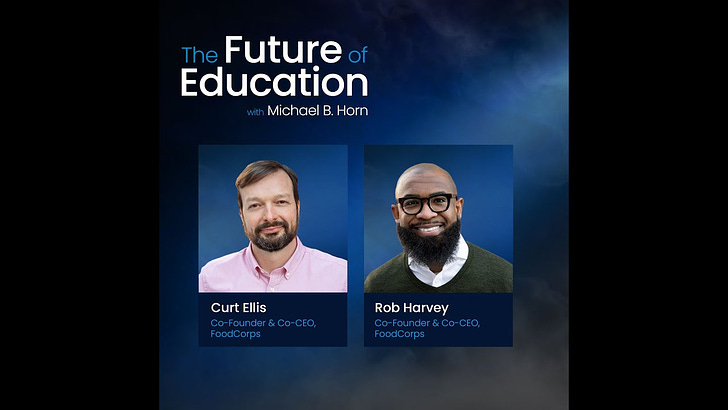
Why Are Parents So Frustrated with Schools Right Now?
Plus, a sneak peek at the cover for my new book
As we cross the midpoint of February and the end of winter is in sight, I’m excited to share with you all the cover design for my new book that is coming out in July.
Titled From Reopen to Reinvent: (Re)creating School for Every Child, it’s a book about what K-12 schools ought to build out of the pandemic to support all children. Here’s the cover!
I’ll share more over the coming months, but given I put the finishing touches on my second draft late in the evening on February 5th, this felt like a good time to share. The book has a full chapter dedicated to what parents want from schooling and how that should impact the design of schools, which is also appropriate to share because the rest of today’s update revolves around… parents and things that are frustrating them.
What Is Driving Parent Frustration with K–12 Schools?
In our latest Class Disrupted podcast, Diane Tavenner and I delved into what is driving parent frustration.
Perhaps it seems simple to you, or maybe it doesn’t, but the reality is that during the Omicron surge, we saw a wide range of opinions and reactions on what parents have wanted from their children’s schools.
Some wanted in-person schooling at all costs. Many are sick of confirmed close contacts and have children stay at home. Many are sick of testing asymptomatic children.
Some wanted schools to close and go remote again. They saw the spiking numbers of people with COVID, the stretched hospitals, the reports of children in hospitals, and more. And they wanted their children nowhere near schools.
There’s a third group that’s really frustrated that their state or district has barred any remote option at all through this. They don’t want to hear that remote schooling doesn’t work for most children. They can point to a good online school and show where it’s working. Or they can point to an n of 1 and say, “Hey, it’s working for my child and my family. Why can’t we have that?”
There are more camps, and there are a whole range of parents that fall in between. Educators have had wildly different stances that we discussed in the episode.
What seems clear is that a one-size-fits-all response from schools to these different demands and desires is inadequate. And yet that’s all many schools and districts have been able to do.
Little wonder perhaps then that Diane and my hopes for grace and gratitude haven’t materialized.
In the episode, I draw from a framework—the Kano model—that I feature in my new book to lay out a way for schools to start to pull apart what different groups of parents want and, in turn, think about how they might serve them differently and what they should prioritize.
You can listen to it (or read the transcript) here.
Is College Worth It Part II?
In my last newsletter I wrote about how a question parents often ask me is whether college is still worth it. That wasn’t something they were asking nearly as much even a decade ago.
We tackled the topic again on Future U, but this time with New York Times financial columnist Ron Lieber, the author of the book The Price You Pay for College: An Entirely New Road Map for the Biggest Financial Decision Your Family Will Ever Make.
Ron wrote the book because his job is to help readers navigate complex financial systems that involve large amounts of money, particularly those where “an above average number of emotions are involved and could potentially lead you astray.”
For parents, that’s college.
You won’t want to miss why Ron said that he came out of the book-writing process, as he said, “pretty close to radicalized at this point, about the lack of transparency and predictability around pricing in this industry. We deserve and we should feel entitled to way [more] information, not just about the product that these institutions deliver, but what on earth we'll actually pay within six figures over four years on the front end.”
No wonder this is yet another source of frustration for so many parents.
In the interview, Ron also offered a few of his tips and tricks he picked up along the way to help folks out with the decision—and then Jeff and I had plenty to react to on the back end of the episode. Check it out here.
As always, thanks for reading, writing, and listening.









Great title! Timely topic!
Michael, Put me down for three copies. We are making progress on our K-12 Life Skills - Private Practice Model. I'm happy to send you our recent Focus Group Summary if you have an interest. Eric Sieb